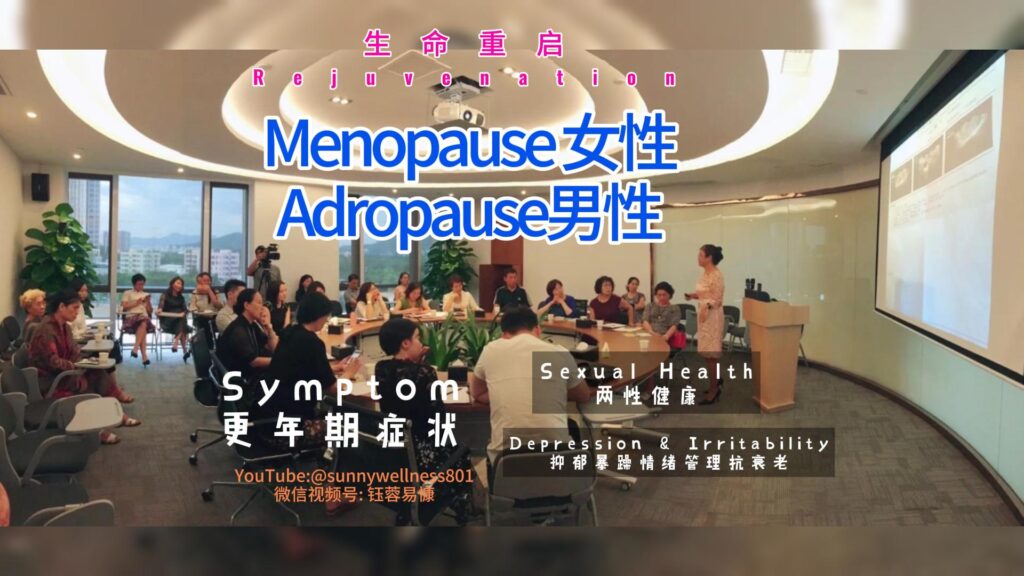
Hi everyone, welcome back to our channel! Today, we’re diving into a topic that impacts both men and women as they age—menopause. But we won’t stop there; we’ll also explore how to manage menopause symptoms, enhance sexual health, and address depression and irritability. My friends, clients, and I have all experienced these challenges, and today we’ll share how we’ve successfully managed them. Let’s get started!
Part 1: Understanding Menopause in Men and Women
Menopause is commonly associated with women, but did you know that men can experience their own version of it? For women, menopause typically occurs between 45 and 55 years of age, marking the end of menstrual cycles. This is due to a decrease in estrogen and progesterone production.
For men, it’s a bit different. Instead of a clear ‘end,’ men experience a gradual decline in testosterone levels, often referred to as ‘andropause.’ This can begin as early as the late 30s, most of them started around 50s or 60s and can lead to symptoms similar to those women experience during menopause.
Part 2: Symptoms of Menopause and Andropause
So, what are the symptoms? For women, these can include hot flashes, night sweats, mood swings, memory decreasing and sleep disturbances. For men, symptoms might include fatigue, depression, irritability, and a decrease in libido or sexual performance.
Part 3: Anti-Aging Tips and Improving Sexual Health
While menopause and andropause are natural parts of aging, there are ways to manage and even alleviate many of the symptoms. Let’s talk about anti-aging strategies and how you can improve your overall well-being.
- Healthy Diet: Eating a balanced diet rich in antioxidants, omega-3 fatty acids, and vitamins can help slow the aging process. Include foods like berries, nuts, and fish in your diet.
- Exercise Regularly: Physical activity can boost your mood, improve sleep, and increase energy levels. For men, resistance training can also help maintain muscle mass as testosterone levels decline.
- Supplements: Consider supplements like vitamin D, magnesium, and omega-3s, but consult with your healthcare provider first.
- Sexual Health: To improve sexual function, both men and women can benefit from a combination of healthy lifestyle choices and medical interventions if necessary. Don’t hesitate to speak with a healthcare provider about treatment options.
Part 4: Managing Depression and Irritability
Depression and irritability can be significant challenges during this phase of life. It’s essential to address these feelings head-on.
- Mindfulness and Meditation: Practicing mindfulness or meditation can help reduce stress and improve your mood.
- Therapy: Counseling or therapy can provide valuable support during these changes, such as energy improvement and bioidentical hormone.
- Social Connections: Stay connected with friends and loved ones. Isolation can worsen mood swings and depression.
Part 5: Final Thoughts and Encouragement
Menopause and andropause are natural parts of aging and can be treated, but you don’t have to go through them alone or without support. By taking proactive steps, you can manage your symptoms and improve your quality of life.
If you found this video helpful, don’t forget to like, share, and subscribe to our channel for more health and wellness tips. And as always, leave your questions and comments below—we love hearing from you!
Thank you for watching, and remember—your health is your wealth. See you in the next video!
